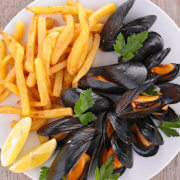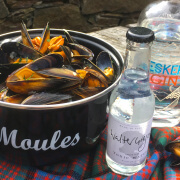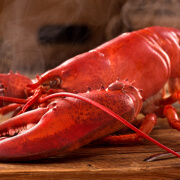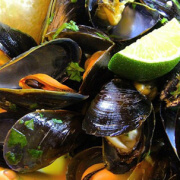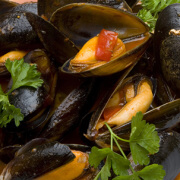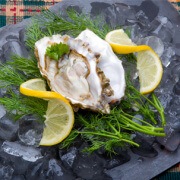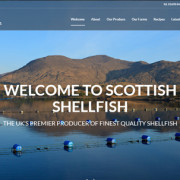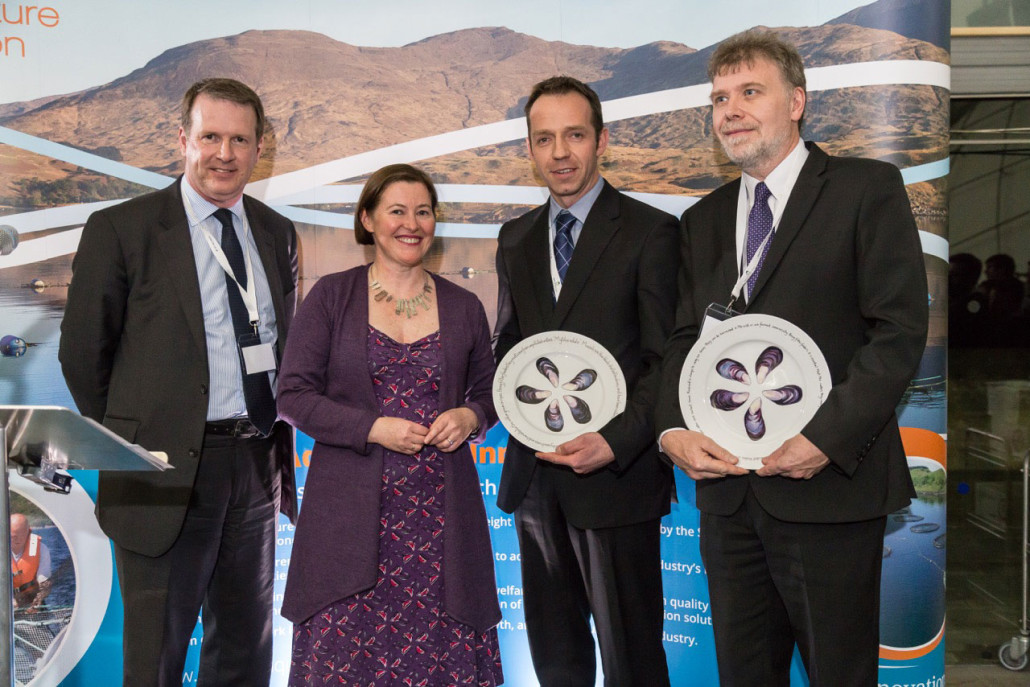A PILOT to test the commercial viability of a mussel hatchery in Scotland will be established in Scalloway, Shetland, it has been announced
The Scottish Aquaculture Innovation Centre (SAIC) and Highlands and Islands Enterprise launched the £1.9 million, 30-month project at an industry workshop in Edinburgh.
Shellfish production is a growing industry in Scotland, supporting more than 500 jobs across the supply chain, many in rural areas. Mussel production in Scotland reached its highest ever level in 2014, with Shetland accounting for almost 80 per cent of production.
There is capacity and demand to raise production substantially, if the industry can address issues such as the availability of mussel spat, said SAIC.
The establishment of a commercial hatchery to produce spat would help to resolve this issue, providing Scottish producers with a reliable supply of spat (and potentially other juvenile shellfish).
Other key partners in the hatchery project include the Scottish Shellfish Marketing Group, the University of the Highlands and Islands and the Scottish government.
At its first annual conference, SAIC also announced funding for two new cleaner fish projects, both exploring the potential of lumpfish. The first, led by Marine Harvest Scotland, with partners Benchmark, BioMar, the Scottish Salmon Company, Otter Ferry and Stirling University, will look at breeding, feeding and deploying lumpsuckers, said SAIC chief executive Heather Jones (pictured).
The £2.5 million, three-year project will receive funding of £817,000 from SAIC, said Jones.
The second research scheme will be led by the Fish Vet Group, with Scottish Sea Farms, the Scottish Salmon Company, Grieg Seafood, and Cook Aquaculture as industry partners, and Stirling University and Ardtoe Marine Research Facility providing the academic support.
This £475,000, two-year project will look at improving the survival and welfare of lumpfish.
Scotland’s deputy first minister John Swinney, who was the keynote speaker at the conference, said: ‘Scotland’s aquaculture industry makes a vital contribution to our economy.
‘It generates economic activity in Scotland worth £1.86 billion every year and creates thousands of jobs in often very remote areas.
‘The Scottish government is fully supportive of the sustainable growth of aquaculture, underpinned by world leading science, research and innovation and the Scottish Aquaculture Innovation Centre has a key role in proactively driving innovation.
‘I welcome this announcement of an innovative project to develop Scotland’s first commercial mussel hatchery.
‘This stepping stone initiative is crucial to our shellfish industry, enhancing the opportunity for significant future growth.’
There are two main elements to the shellfish project:
- establishing a core pilot-scale hatchery at the NAFC Marine Centre UHI in Scalloway, Shetland, and testing the commercial feasibility of spat production;
- a programme of research and development to support new technologies and processes aimed at increasing the yield of farmed mussels in Scotland.
Also involved in the R&D programme are members of the MASTS (Marine Alliance for Science and Technology) academic community.
In addition to the NAFC Marine Centre UHI, this includes researchers at the University of Stirling’s Institute of Aquaculture, the Scottish Association for Marine Science (SAMS, which is also a member of the University of the Highlands and Islands) and Marine Science Scotland, as well as a Scottish research focused company, Xelect.
Funding for project includes contributions from SSMG, the Scottish Aquaculture Innovation Centre, Xelect and the academic partners, as well as significant investment from Highlands and Islands Enterprise and the Scottish Government.
Jones said: ‘Developing secure health certified spat production systems is a Priority Innovation Action for SAIC, and we’re very pleased to drive such an initiative forward and co-fund this stepping stone to a commercial hatchery project.
‘In bringing together academic expertise and industry ambition, this transformative project could deliver measurable economic growth in a key Scottish sector.’
Michael Tait, chairman of SSMG, said: ‘Having a more reliable source of spat will help shellfish producers in Scotland meet the industry’s shellfish production target of 13,000 tonnes by 2020.
‘In addition, the new technologies and processes permitted by the SAIC sponsored research could allow our members to generate increased and more reliable yields, and help them target new export markets. This announcement is a milestone for the industry.’
Elaine Jamieson, head of Food & Drink, Highlands and Islands Enterprise, said: ‘The Highlands and Islands has a global reputation in aquaculture and our produce is renowned for its high quality.
‘The shellfish industry clearly has ambition to increase production, and this collaborative research project has the potential to strengthen Scotland’s position in a growing international market. We believe the project will be a catalyst to significantly improving productivity and output.
‘The vast majority of our shellfish producers are located in coastal communities in the north and west of Scotland, so in addition to supporting growth in the food and drink sector, this project will benefit communities and create new jobs in some of our more remote areas.’
University of the Highlands and Islands deputy principal Dr Crichton Lang, said: ‘The applied research made possible by this hatchery project will look at aspects the industry considers important to commercial success.
‘As such, the research could make a demonstrable impact on coastal communities and the shellfish industry in Scotland, and we are delighted to be part of this collaboration.’


